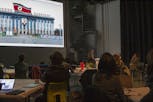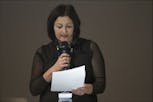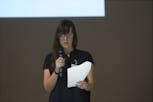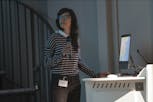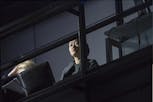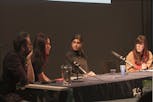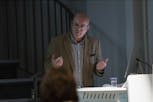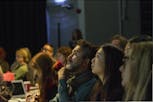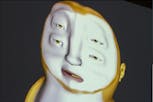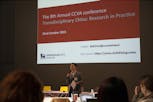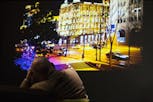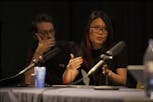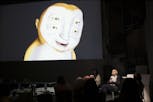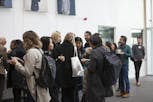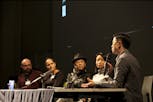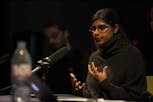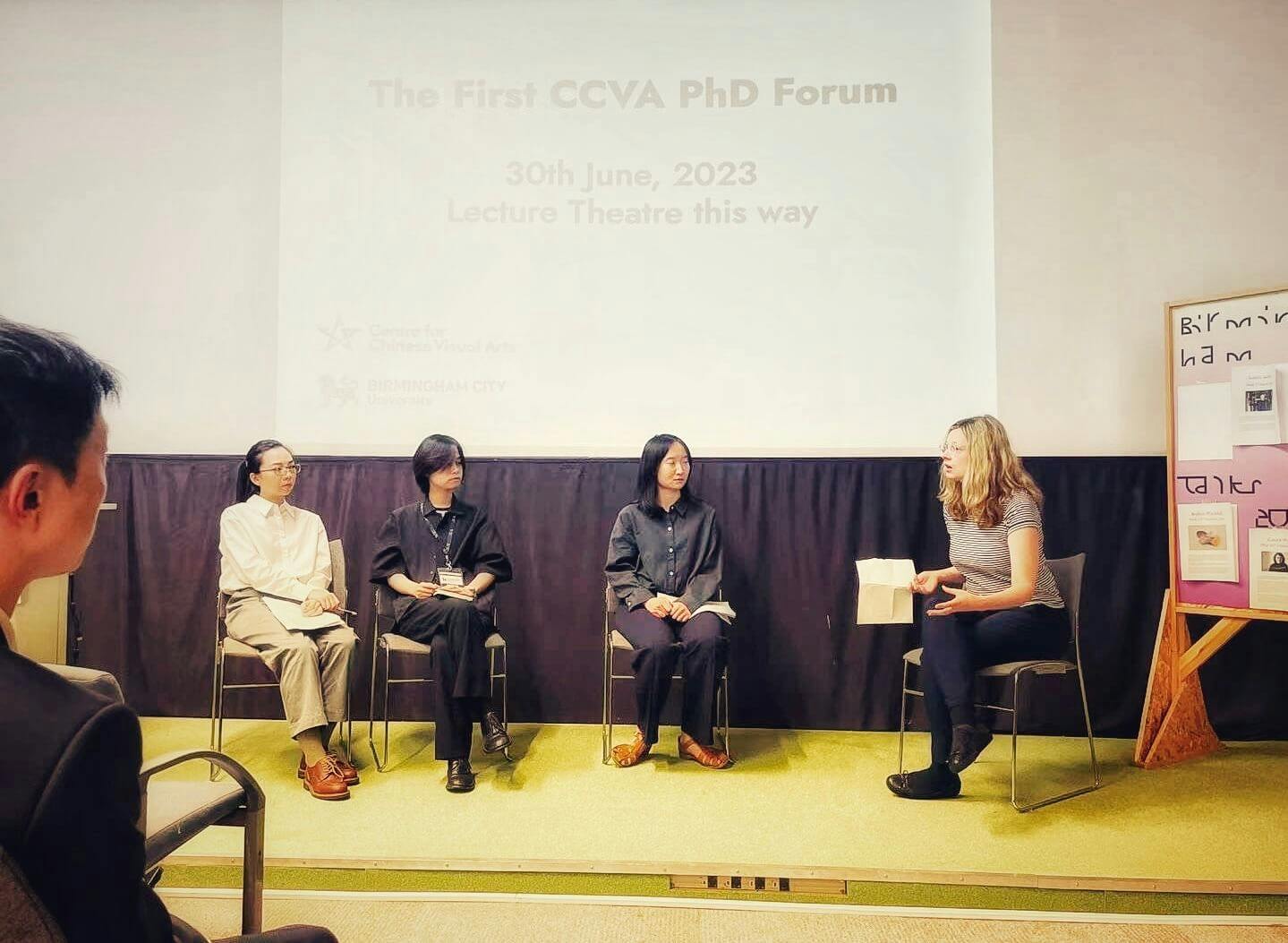Conferences and events
Past events
Call for Papers: Magical Metropolis: the Shanghai Surreal
This 16th Annual Conference of the Centre for Chinese Visual Arts showcased a specific cityscape to provoke discussions, debates, and new understandings in a transdisciplinary context. The conference focused on Shanghai, popularly known as modu (magical metropolis) today.
For more information about the project, please visit the Call for Papers page.
Date: 23 - 24 November 2023
Venue: Birmingham School of Art: Margaret Street
China’s Cultural Diplomacy and Nation Branding
This 15th annual conference of Centre for Chinese Visual Arts, Birmingham City University was organized in partnership with De Montfort University, UK and the Arts and Humanities Research Council (AHRC).This conference was a part of our research and networking project ‘Art Diplomacy and Nation Branding: The Visual Politics of Reinventing China’. For more information about the project, please visit our website.
Date: 1-2 December 2022
Venue: Lecture Theatre, School of Art, Margaret Street, Birmingham B3 3BX
Thursday 1 December
Old Stories, Contemporary Politics, Shared Futures: Chinese Soft Power and Visual Narratives of Friendship in Zambia
Panel One: Nation Branding
Chair: Dr Christopher Browning
Panel Two: Traditional Culture as Capital
Chair: Dr Federica Mirra
Panel Three: Art Diplomacy
Chair: Dr Jenifer Chao
The Making of a Post-Cold-War China: ‘China Avantgarde’ and ‘Silent Energy’ in the 1990s
Nation Branding by Evasive Curation: The Case of Q Art Group - A Hong Kong-made Image of China through Central and Eastern European Art
Friday 2 December
Panel Four: Film and Vlogs
Chair: Dr Lauren Walden
21st Century Hollywood SciFi: Telling China’s Stories Well
Everyday Nation Branding in Digital China: The Case of ‘Liziqi’ and Implicit Nation Promotion
(Soft) Power struggle: Hollywood vs the Chinese market and the challenges of film nation branding
Panel five: Roundtable
Yan Wang Preston, Visual Artist
Professor Jiang Jiehong
Dr Jenifer Chao
Panel Six: Operatic and Theatrical Exchanges
Chair: Dr Hongwei Bao
Reinventing Chinese traditional opera in the digital age: from cultural dilemma to cultural confidence
Turandot: a Persian princess, a Chinese contemporary story
Meng Jinghui’s Teahouse: an international success or an outrage to Chinese culture?
Xiaowen Zhu,Director of Centre for Chinese Contemporary Art, Manchester
Professor Jiang Jiehong
Dr Jenifer Chao
(Dr Jenifer Chao, Dr Chris Browning, and Professor Jiang Jiehong)

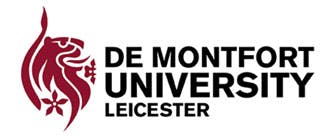


The CCVA Annual Conference is constructed as an international platform to bring scholars and research degree students together, primarily within the network, to discuss recent research development, share knowledge and exchange research experiences, and to expand expertise within the interdisciplinary community.
14th Annual Conference
Transcultural Curation and the Post-Covid World
The Centre for Chinese Visual Arts (CCVA) at Birmingham City University aims to foster new understandings and perspectives of Chinese contemporary arts, design and visual culture through interdisciplinary practices and theoretical studies. This two-day conference invites researchers, curators, artists, designers and practitioners at all stages of their careers to reassess the significance of transcultural curation, both before and after the Covid-19 pandemic.
The idea of the ‘transcultural’ is currently gaining momentum in academic, curatorial and artistic contexts, providing a framework for thinking through non-hegemonic global exchanges and knowledge production. Highlighting entanglements between and within cultures, the transcultural provides a new set of ethical, methodological and theoretical concerns, as well as a timely platform for curatorial and artistic practices in the globalised art world. How do exhibitions of Chinese contemporary art engage with the ideas and possibilities of transcultural curation, and with what kinds of political imaginaries? In what ways is Chinese contemporary art mobilised through international exhibitions situated in between institutional, commercial, independent art spaces and beyond?
Following the arrival of the coronavirus, the normal, globalised art world is in a state of suspension. From the closure or delay of biennials/triennials around the world, restricted access to art venues, to virtual exhibitions and programmes, what is the new role of a curator? With the impact of the Covid-19 crisis, the increasing geopolitical, economic and cultural conflicts between China and its Western allies, the rise of racist attacks against Chinese in the diaspora, what does the ‘transcultural’ mean in the post-Covid context?
Drawing on the rich history and debates on decolonial approaches that move beyond binaries and static positions of East-West, at the current pivotal moment, we are exploring innovative discussions, new understandings and methodological approaches in curatorial research and practice. This conference seeks to open up new modes of enquiry within the fields of art, curation, visual culture and cultural studies in China, and beyond.
Urbanization, Globalization and Contemporary Art in China
In the last few decades, China has seen the most extraordinary economic growth, fuelled by rapid urban development, the scale and speed of which are unprecedented in human history for both the increase in construction projects and the increase of the urban population. Buildings, architectural complexes, streets, and even whole cities can be transitory, leaving little trace of what has gone before. Many scholars have rightly referred to the recent transformation of China as an ‘urban revolution’. The changes have continued all the way through the ‘revolutions’ in the last century, and are evident in the acceleration of economic and urban development since the Open Door Policy of 1978, shaping a moving reality that is almost surreal, beyond normal and perceptible daily existence. If the mission of an artist is to think, imagine and critique, is it even possible to keep up with a society in such flux? As daily changes are experienced as part of urban existence, what does China really look like? What are the relationships between visual reality and the instability of what has been seen and experienced; between artistic response, imagination and memory? In response to the incessant changes, artists have shaped a shifting reality, an illusory one, beyond the normal and tangible environment of everyday life. In the lecture Urbanization and Chinese Contemporary Art, art curator and educator, Jiang Jiehong will discuss artworks that respond to the urban transformation in China through a range of interconnected natures.
Following the lecture, curator/critic/author Barbara Pollock will moderate a discussion on the topic of "Globalization and Chinese Contemporary Art" with panelists including Li Zhenhua, the curator of A Composite Leviathan, James Elaine, and Jiang Jiehong. This conversation will discuss how globalization, along with urbanization, has influenced Chinese contemporary art in terms of the production of art, the art industry as a whole, and related academia.
Professor Jiang Jiehong is Head of Research at School of Art, Director of the Centre for Chinese Visual Arts, Birmingham City University, and he is also Principal Editor of the Journal of Contemporary Chinese Art (Intellect). Jiang has extensive research and curatorial experiences in contemporary art and visual culture. Jiang curated the Guangzhou Triennial: the Unseen (with Jonathan Watkins, 2012), the Asia Triennial Manchester: Harmonious Society (2014), the Shadow Never Lies (with Mark Nash, Shanghai Minsheng Art Museum, 2016), and most recently, the First Thailand Biennale: Edge of the Wonderland (Krabi, 2018-19). Jiang’s book publications include Burden or Legacy: from the Chinese Cultural Revolution to Contemporary Art (Hong Kong University Press, 2007), the Revolution Continues: New Art from China (Jonathan Cape, 2008), Red: China’s Cultural Revolution (Jonathan Cape, 2010), An Era without Memory: Chinese Contemporary Photography on Urban Transformation (Thames and Hudson, 2015), and The Art of Contemporary China (Thames and Hudson, forthcoming in 2021).
Barbara Pollack has been writing on art since 1994, often addressing the situation for artists in repressive regimes from a global perspective, particularly China. She is the author of many essays and books including most recently Brand New Art from China: A Generation on the Rise, published in 2018. She has regularly curated shows, starting with a 1996 show staged in her home titled My Friends in My Apartment and a one-day exhibition in 2001 at a local schoolyard, Yard Sale, with the cooperation of Simon Watson. In recent years, she has curated shows at the Tampa Museums of Art, Orange County Museum of Art, the Long Museum West Bund in Shanghai and the Yuz Museum, also in Shanghai. In 2022, she will present Mirror Image: Changing Chinese Identity at the Asia Society Museum in New York. She is a professor at the School of Visual Art.
James Elaine is an artist and contemporary art curator living and working in Beijing, China. His artwork has been included in film festivals, museums, and galleries around the world. From 1999 to 2009 he was the Hammer Projects curator at the Hammer Museum in Los Angeles, and from 1989 to 1999 he was the curator for the Drawing Center in New York. He has received numerous grants and fellowships and was the winner of the 2008 Ordway Prize for his lifetime of curatorial work. In 2011, he curated the first emerging Chinese artist exhibition in the US, In A Perfect World..., at Meulensteen Gallery, New York, and in 2012, the first emerging Chinese video exhibition in the US, Unfinished Country: New Video from China, at the Contemporary Art Museum and the Asia Society in Houston, Texas. In 2012, Elaine founded Telescope, a nonprofit project space in Beijing.
Li Zhenhua has been active in the artistic field since 1996. His practice mainly involves curation, art creation and project management. Since 2010 he has been the nominator for the Summer Academy at the Zentrum Paul Klee Bern (Switzerland) and The Prix Pictet (Switzerland). He is a member of the international advisory board for the exhibition "Digital Revolution" at the Barbican Centre in the UK in 2014. He was a member of the international advisory board for Videotage and Symbiotica in 2015. Since 2003, he worked as jury in the film and arts field, such as Shorti (Span 2003), Napolis Film festival (Italy 2006), Transmediale 2010 (Berlin, Germany 2009), CCAA (Beijing, China 2012), CIFF (Nanjing, China 2012), Fantoche (Switzerland 2012), Art Award China (Beijing, China 2015-2016). In 2015, he received the award of Curator of the Year from TANC Asia Prize, Shanghai and the award of Curator of the Year (2014) from Art Power 100, Beijing.
This program will be presented in English.
The 12th Annual Conference
Urban Transformations and Contemporary Art in China
Centre for Chinese Visual Arts, Birmingham City University, in collaboration with Tate Liverpool
The Centre for Chinese Visual Arts (CCVA) at Birmingham City University aims to foster new understandings and perspectives of Chinese contemporary arts, design and visual culture through interdisciplinary practices and theoretical studies.
Marking the 20th anniversary of the Shanghai-Liverpool twinning cities in 2019, we are now convening the 12th CCVA Annual Conference in collaboration with Tate Liverpool. This two-day event invites researchers, curators, artists, designers and architects in the fields of art, design, visual culture and urban studies at all stages of their careers worldwide to reassess the significance of the urban transformations in China, and to reflect upon their impact on everyday experience and artistic and curatorial practices in the globalised world.
In recent decades, China has experienced a revolutionary urban development. The incessant changes have shaped a moving reality, almost illusive, beyond the normal and tangible environment of daily life. The rapidity of today’s urbanisation is a global issue, and yet the example of contemporary cities in China is singular, filled with excitement and anxiety. Histories have been destroyed, and heritage and memories are being reinvented for the future. How do we re-examine the triumph of economic achievement and urban development, or the loss, through sociological, anthropological, cultural and artistic perspectives? For those insiders – artists who are living through the accelerated development and its disturbance, how to capture and interpret the transient, to respond critically to such an urban existence, and to imagine a unique or almost surreal experience in China?
The 11th Annual Conference
Everyday Legend: Reinventing Traditions in Contemporary Chinese Art
Date: 10 – 11 September, 2018
Venue: School of Art, Birmingham City University
During the early development of the People’s Republic of China, major cities were industrialised and historical architecture was severely neglected. The Cultural Revolution (1966-76) provided an extraordinary example of political mobilisation directed against the material and cultural vestiges of the past. Since the 1980s, the pace of globalisation and the force of its reshaping influences have posed a serious threat to the sustainability of Chinese traditions, as Western culture has permeated Chinese cities with internationalisation. Urbanisation and tourism has turned Chinese traditional art and crafts from indigenous to touristic and commercial, from the local to global. Today in China, much of what is described as traditional is no longer part of an everyday reality, but is instead an item of material culture ranging from discrete displays of museum cases to monumental structures of historical significance.
To reflect critically upon this cultural anxiety, will tradition reinvent the past for the future and translate from China to the world? Tradition stands in the first instance for the heritage including its intangible dimensions of cultural activities and products whose possible extinction is now sharply profiled by relentless social adjustments to standardised industrial production, transnational distribution, mass marketing, centralised media flows, and patterns of imagination that stress the global ahead of the national ahead of the local.
This unique situation in China provides contemporary artists with challenges and opportunities, as traditions are constantly reassessed and reinvented. Looking towards the fragmented traditions, artists stand in various positions favourable to reimagining, appropriating and subverting the processes that traditional art and crafts have long used, harnessing their symbolic potential and exploiting their cultural resonances. Through their practices, artists re-examine, draw from and are inspired by traditions, including techniques, forms and materials, as well as aspects of their intangible cultural heritages, critically reflect upon their current situations and its implications to the present and future, and ultimately, reposition Chinese contemporary art in the international arena.
This conference aims to reassess the cultural significance of these everyday traditions relevant to China and to the world today, and in particular, responding to the relationship between contemporary art and traditional arts and culture in China. We encourage innovative and interdisciplinary perspectives, including art, social sciences, anthropology, visual and material culture and tourism, in order to develop new understandings of Chinese contemporary art in the context of globalisation.
The 10th Annual Conference
Chinese Art Outside the Art Space
Thursday and Friday, 12-13 October 2017, School of Art, Birmingham City University, Margaret Street, Birmingham, B3 3BX, England
The Centre for Chinese Visual Arts (CCVA) at Birmingham City University aims to foster new understandings and perspectives of Chinese contemporary arts, design and visual culture through interdisciplinary practices and theoretical studies. During its first decade, CCVA has established a unique position in the UK to pioneer the research in the field. We are now convening this two-day Annual Conference to invite researchers, curators, art historians, critics and artists at all stages of their careers worldwide to contribute to the topic, marking the 10th anniversary of the Centre.
Historically, in China, ‘art outside the art space’ can be understood as both a cultural and a political proposition. From a cultural point of view, the notion of public ‘exhibition’ is entirely Western, whilst in the Chinese tradition of literati art for example, artworks were made, shared, and appreciated within the form of scholarly ‘elegant gathering', which was essentially a kind of private (rather than public) event within secluded (rather than institutional) spaces. From a political perspective, the ‘outside-ness’ immediately relates to the ‘unofficial’ status of contemporary Chinese art from its early development. For example, the first Star Group exhibition in September 1979 – generally acknowledged as the very first show that marked the beginning of contemporary art in China – was staged in a small public park just next to the China National Art Museum, outside the legitimated and official art space. Today, the situation of Chinese art taking place outside the museum and gallery spaces continues, but with a completely different momentum and agenda.
Art has been produced site-specifically for the spaces other than art institutions in China, including those of working venues, shown in a range of alternative spaces beyond galleries or museums, and has ‘happened’ in the public sphere and become political or social ‘events’, or artistic ‘incidents’, as a special form of ‘exhibition’. Creative curatorial and artistic strategies have been developed to respond to the constraints of art institutions, censorships and at the same time, to push the boundaries of art. Focusing on art made, displayed, performed or executed outside the conventional venues of art museums and galleries, this conference not only offers a unique perspective to understand Chinese art in the contemporary context, but also, more importantly, it aims to critically reflect upon the understandings between art and art exhibition, between artistic productions and audience perceptions, and between art and our daily life.
The 9th CCVA Annual Conference 
Making the New World:
The Arts of China's Cultural Revolution
11-12 November 2016
In collaboration with Whitechapel Gallery
Zilka Auditorium, Whitechapel Gallery, London, E1 7QX
Marking the 50th anniversary of the Cultural Revolution, in collaboration with Whitechapel Gallery, we are now convening this two-day international conference as the ninth CCVA Annual Conference. It invites researchers, artists, designers, curators and practitioners at all stages of their careers worldwide to reassess the significance of the arts and culture of the cultural revolution, and to reflect upon their impacts on everyday life in China within socio-political, cultural and global contexts.
Invited full papers should be completed by 20 December 2016 to be featured in Journal of Contemporary Chinese Art (Intellect) as a special issue in 2017.
The 8th CCVA Annual Conference
Transdisciplinary China: Research in Practice
22 October 2015, 10am - 7pm
The Shell, Parkside Building, Birmingham City University (BCU), UK
A one-day symposium that seeks to interrogate the nature and significance of transdisciplinary research and arts practice in and about contemporary China, its arts and culture.
Jonathan Harris, Professor in Global Art and Design Studies at Birmingham City University will deliver the keynote address entitled The Global Asian Contemporary Art World: Analytic Perspectives, SHEN Xin, CCVA and Chronus Arts Center fellow will present Shoulders of Giants with Professor Johnny Golding, Philosopher and Director of the PhD/Post-doctoral Centre for Fine Art Research at Birmingham City University, alongside presentations and panel discussions from established and emerging researchers, artists, curators and academics from UK, China, Hong Kong, Taiwan, USA, Russia, Poland, Italy amongst others. Collectively these will serve to generate discussion and enable us to identify common areas of interest and communities of practice; to share, encourage and support new research as it happens with a global audience.
The event will consider:
- The nature and the significance of transdisciplinary research and practice, and how these dialogues create new knowledge;
- The importance, impact, influence and potential of transcultural research;
- New ways of framing and discussing Chinese Contemporary Arts that moves beyond the traditional East/West paradigm;
- The significance of practice-based and practice-led research in relation to Chinese contemporary arts and culture.
Watch the event archive online:
Contributors:
Zara Arshad - Claudio Beorchia - Magdalena Furmanik-Kowalska - Menene Gras Balaguer - Olga Makshanova - HUNG Keung - Tobia Maschio - Kira Simon-Kennedy - TANG Siyun - ZHU Xiaowen - ZHANG Qinghong - Heather Connelly - Rachel Marsden- JIANG Jiehong.
The 5th CCVA Annual Conference
Yingxiang Today
13-14 October 2011
Central Academy of Fine Arts, Beijing
Yingxiang in Chinese, literally means shadow (ying) and image (xiang), and can be referred to as photography, video, film, and digital images, either still or time-based. Having its ambiguity of reference to a particular medium, it creates an opportunity to break the traditional boundaries between disciplines. Today, photographic and moving images have occupied all of our sights, from public to private spaces, and flashed through all kinds of screens, large or small. They have produced a different kind of daily life together with new social relationships. Contributors are invited to focus on the notion of yingxiang in relation to memories, urban development, mass or participatory art, social media, politics of spectatorship, and its new understanding and development in the context of art education.
Contributors:
Dr GAO Shiming (CAA) - GAO Shiqiang (CAA) - Professor Gu Zheng (School of Journalism, Fudan University) - Dr JIANG Jiehong (BIAD) - Professor Mark NASH (Royal College of Art) - PI Li (CAFA) - WANG Chuan (CAFA) - LUO Tianran (BIAD) - Rachel MARSDEN (BIAD) - MIAO Xiaochun (CAFA) - Professor Darren NEWBURY (BIAD) - Nuria Querol (Royal College of Art) - Professor Olivier RICHON (Royal College of Art) - TANG Xiaolin (CAA) - ZHENG Bo (CAA) - ZHOU Shiyan (CAA)
The 4th CCVA Annual Conference
Art in the Public Realm: Mass Culture and Identity
20-21 November 2010
China Academy of Art, Hangzhou
China Academy of Art, Hangzhou
The Fourth Annual CCVA Conference
The following perspectives were suggested, including public space and mass art; public realm and virtual reality; participatory art and popular culture; collective identity in mass movement, and contemporary art biennials/triennials in daily life.
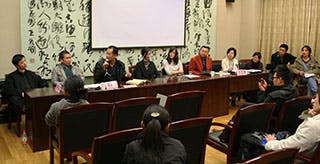
Following the Third CCVA Annual Conference, this event was held to continue the discussion on ‘art in the public realm’, and to provide an opportunity particularly for current doctoral students within the partnership institutions, to share their recent and relevant studies.
The contributions of the Third and Fourth CCVA Annual Conferences will be selected and edited for a book published by China Academy of Art Press in September 2011.
Contributors:
HAN Xu (CAA): Better City Better Life – Contemporary City and Its Identity HANG Hai (CAFA): World University Games Identity Design
Lorna HARDS (BIAD): Public Art and Strategy in Birmingham, 1985 to the Present
HU Yijia (CAA): Public Art Strategy in the Urban Development of Contemporary China
Rachel MARSDEN (BIAD): ‘Translating’ Contemporary Chinese Art – Curating for the Public Audience
Professor WANG Zhong (CAFA): A Misread Public Art
XUE Zhaohui (CAA): Greenberg’s Misuse of Kant on Mass Art
Professor YANG Jinsong (CAA): Visual Culture and Art Education during the Development of Urbanisation
Professor YANG Qirui (CAA): the Zhejiang Pavilion at Shanghai EXPO
YE Yun (CAA): Art Management in the Public Realm
ZHANG Wensong (CAA): the Value of Performance Art
ZHAO Huasen (CAA): An Experience of Immersion – from Yungang Caves to Shanghai EXPO
The contributed papers of the Third and the Fourth CCVA Annual Conference are to be published as a book in October 2011 by China Academy of Art Press.
The 3rd CCVA Annual Conference
Public Space, Art and Collective Memory
9-10 November 2009
School of Art, Birmingham Institute of Art and Design, Birmingham
The Third CCVA Annual Conference was hosted by School of Art, Birmingham Institute of Art and Design. It provides an interdisciplinary framework for discussion focused on the notions of public space, socially and politically based art, and collective memory. It will examine such issues as definitions of public space; its function in daily life, particularly in China; the role of socially and politically engaged art in the development of public space; public sculptures and monuments; performance art; the role of public art and the visual environment in the creation and revision of collective memories; the ambiguous roles of both artists and viewers as creators and observers of public space; and the use of participatory art projects to encourage new social relationships.
Contributors:
Professor John AIKEN (Slade School of Fine Art, University College London): What Makes Successful Public Space?
Francoise DUPRE (BIAD): the Practice of Memory and Its Ethics
Dr Sian EVERITT (BIAD): Archiving Public Art: Public Art as Archive
Dr GAO Shiming (CAA): Nowhere, Now Her – from the Suspension of Utopia to Public Participation
Professor MAO Jianbo (CAA): Chinese Painting – An Expression of Memory, from Private to Collective
QIU Zhijie (CAA): Nanjing Yangtze River Bridge – the Shadow of A Monument
Professor Nick STANLEY (BIAD): Public Representation of Ethnic Minorities in China in the Past and the Present
Professor SUI Jianguo (CAFA): Personal Practice for Memorising – Constructing and Reshaping the Public Spaces
Professor Richard WENTWORTH (Royal College of Art): Who Does Private? What Is Public?
Professor YIN Shuangxi (CAFA): the Monument to the People’s Heroes
Professor XU Jiang (CAA): Reflections between Site and Memory
The 2nd CCVA Annual Conference
Doctoral Research in Art and Design II
8-9 November 2008
Central Academy of Fine Arts, Beijing
This CCVA Annual Conference continues as the second half of discussions on doctoral education in art and design. It also creates opportunities for supervisors and research degree students to exchange research and supervisory experiences.
Contributors:
Professor John BUTLER (BIAD) - Professor CAO Yiqiang (CAA) - Professor Chris O’Neil (BIAD) - Professor JIN Zhilin (CAFA) - Professor LI Kuizheng (Institute of Fine Arts, Central University of Nationalities) - Professor LIU Jude (Institute of Art and Design, Tsinghua University) - Professor LONG Xiang (CAA) - Professor MAO Jianbo (CAA) - Professor PAN Gongkai (CAFA) - Professor QIU Zhenzhong (CAFA) - Professor SONG Jianming (CAA) - Professor SUN Jingbo (CAFA) - Professor WU Haiyan (CAA) - Professor ZHANG Xiaolin (China National Academy of Art) - Professor ZHONG Han (CAFA)
The 1st CCVA Annual Conference
Doctoral Research in Art and Design I
19-20 May 2007
China Academy of Art, Hangzhou
The First CCVA Annual Conference aims to provide a forum to initiate a dialogue between China and Britain on the doctoral education in art and design. Contributors are encouraged to discuss and share their understanding and experience in the following areas: 1) historical development of doctoral education; 2) current governmental strategy of doctoral education; 3) definitions of doctoral studies; 4) research proposal in art and design doctoral studies; 5) research methodology in art and design doctoral studies; 6) the role of visual practice in art and design doctoral studies; 7) evaluation and examination of art and design doctoral studies; and 8) ethic issues in art and design doctoral studies.
Contributors:
Professor Cao Yiqiang (CAA) - DU Jueming (CAFA) - Professor Fan Jingzhong (CAA) - HUANG Binbin (CAA) - Dr Jiang Jiehong (BIAD) - LENG Jian (BIAD) - Professor Luo Shiping (CAFA) - Professor Mao Jianbo (CAA) - Professor REN Daobing (CAA) - Professor Song Jianming (CAA) - Professor Nick Stanley (BIAD) - WAN Muchun (CAA) - Professor Wang Guoliang (CAA) - Professor Wu Haiyan (CAA) - Professor Xu Jiang (CAA) - Professor Xu Ping (CAFA) - Professor XUE Yongnian (CAFA) - Professor Yuan Yunsheng (CAFA) - Professor Zhang Lichen (CAFA)
CCVA Symposium
Photography Education in Contemporary China
19 November 2010
Central Academy of Fine Arts (CAFA), Beijing
This half-day symposium was held at the venue of the opening of the two exhibitions, Beyond Memory and I Change Therefore I Am, at the CAFA Art Museum. It aimed to review the decade development of CAFA Photography since its establishment in 2000, and to examine contemporary photography practice in the context of art education.
Contributors:
HU Jieming (Shanghai Academy of Visual Arts) - LIU Zheng (Independent Artist) - Professor MA Gang (CAFA) - MA Yong (Chinese Photography) - Siegfried Manietta (Queensland College of Art, Griffith University) - MIAO Xiaochun (CAFA) - Professor PAN Gongkai (CAFA) - Professor TAN Ping (CAFA) - WANG Chuan (CAFA) - Dr WANG Chunchen (CAFA Art Museum)
CCVA Symposium
Visual Practice and Curatorial Perspectives of Contemporary Chinese Art Today
1 November 2008
Birmingham Museum and Art Gallery (BMAG), Birmingham
This one-day symposium featured a range of leading scholars and curators both from China and the UK, discussing current developments in Chinese contemporary art, visual culture and curatorial practice in relation to rapid economic development and social change. Through a variety of perspectives, speakers shared their recent experience, understanding and reflections on contemporary Chinese art at present, explore particularly the themes highlighted in Birmingham Museum and Art Gallery's Beijing Map Games exhibition, and critically reassess the curatorial strategy of contemporary Chinese art in the international arena.
Contributors:
Professor Craig CLUNAS (University of Oxford) - Dr GAO Shiming (CAA) - Nigel PRINCE (IKON Gallery) - Karen SMITH (Independent Curator)
From great music to captivating speakers, there's something for everyone on the BCU events calendar.
Event types:
Conference-
-

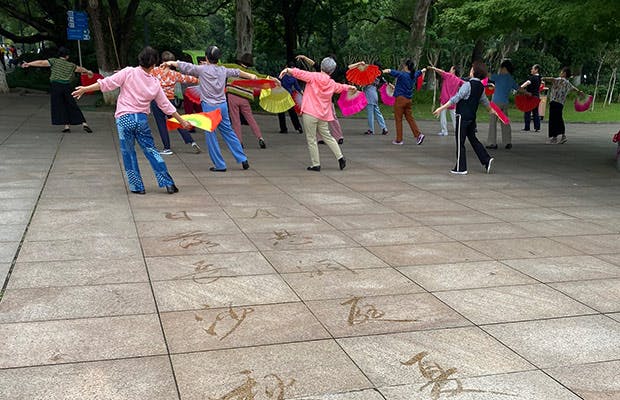
The 17th Annual Conference - (Extra)Ordinary Living: Aesthetics in Contemporary ...
09 - 10 Nov 2024
